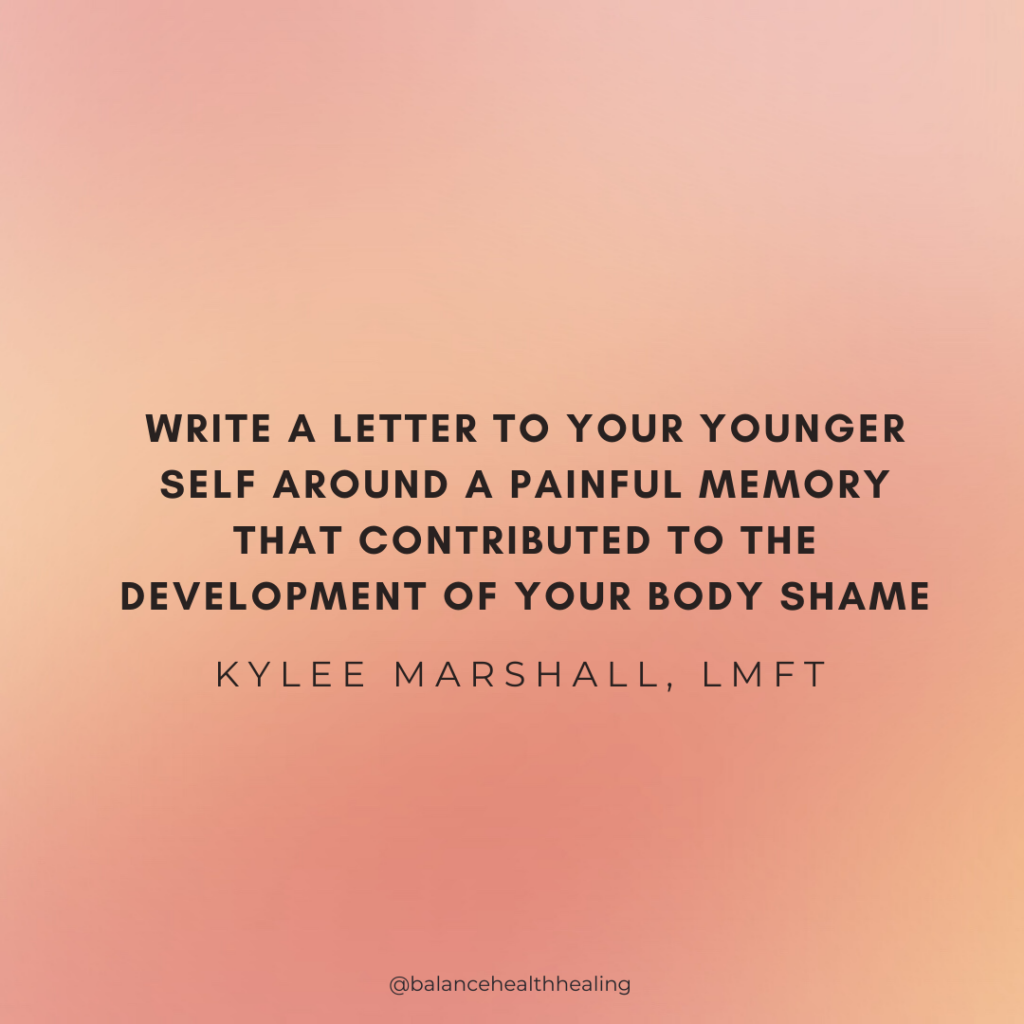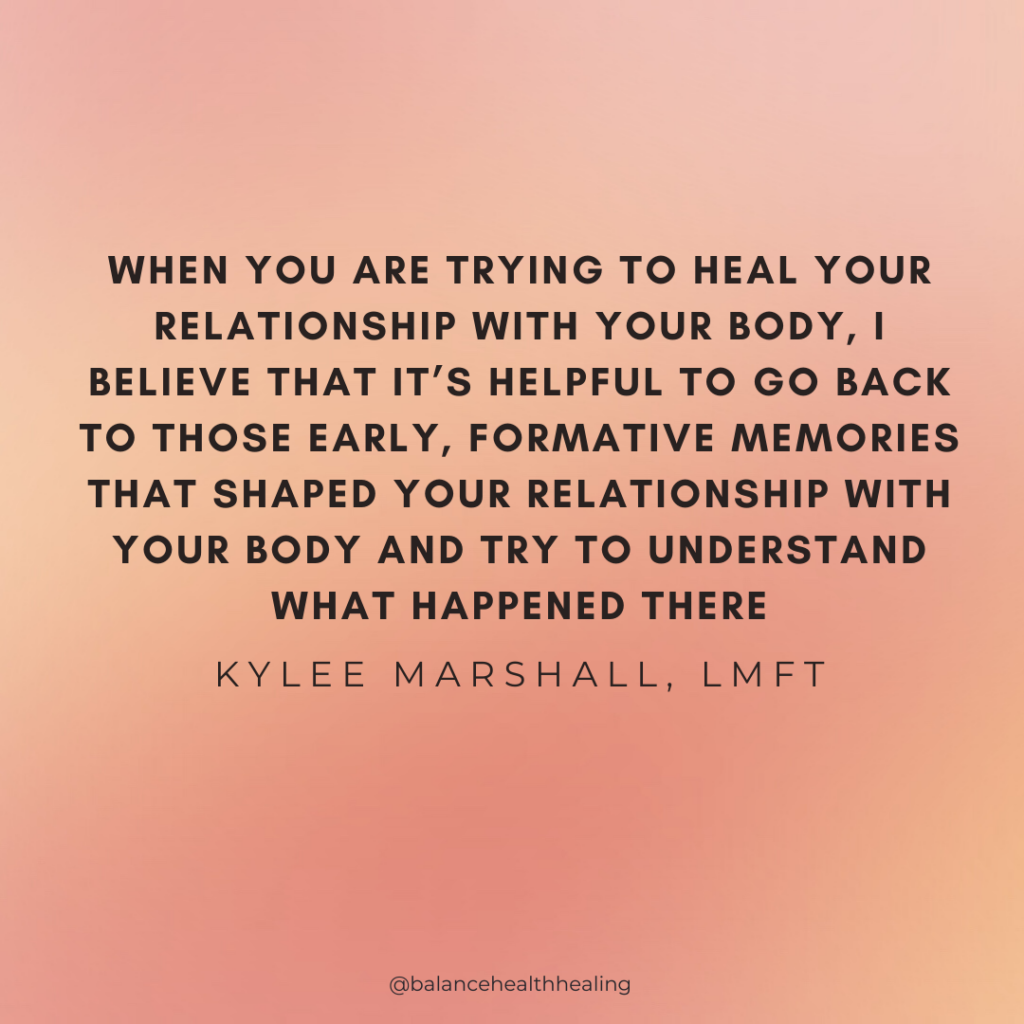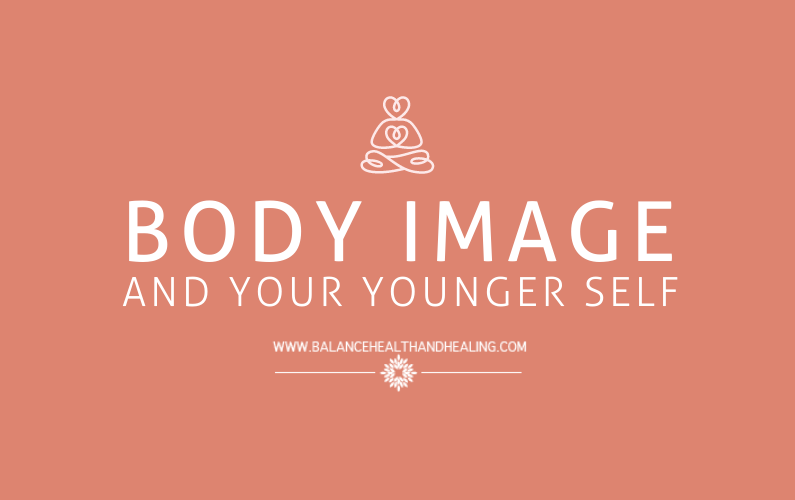One of the more difficult parts about recovering from an eating disorder is healing your relationship with your body. This is often so difficult because your relationship with your body has been developing since you were young, reinforced by external messaging time and time again.
 Can you recall some of your earliest memories of body shame? How old were you? Do you remember how it felt? Did someone say something to you? If so, I’m betting that you probably remember their exact words and tone of voice. Did you engage in any specific behaviors after this first experience of feeling shame about your body? What other factors influenced your developing relationship with your body?
Can you recall some of your earliest memories of body shame? How old were you? Do you remember how it felt? Did someone say something to you? If so, I’m betting that you probably remember their exact words and tone of voice. Did you engage in any specific behaviors after this first experience of feeling shame about your body? What other factors influenced your developing relationship with your body?
Most of your current negative experiences of your body probably stem from childhood. Part of natural child development is looking to others to help you understand the world. You watch how your friends pump their legs to swing higher and so you do the same. You see your dad lick the spoon of the chocolate cake batter and so you try it too. Your mom swears when she’s upset and the next time you stub your toe, you use that word as well, much to her chagrin. However, because young human brains are constantly taking in information from others to try to understand how things work, you might also have taken in some painful, negative messages that have been truly hard to shake as time has passed. These messages might still be part of your core belief system about your body and about yourself.
For me, one of the most difficult and informative experiences happened when I was in about 7th grade (the most awkward, humiliating time of life). I had a good friend tell me that the boy I had a crush on told her that I would “be the prettiest girl in our grade if I was skinny.” Oof. Talk about one of those memories that sticks with you. My little 12 year-old self drew some pretty painful conclusions from this conversation. Conclusions that stayed with me for more than a decade after.
me that the boy I had a crush on told her that I would “be the prettiest girl in our grade if I was skinny.” Oof. Talk about one of those memories that sticks with you. My little 12 year-old self drew some pretty painful conclusions from this conversation. Conclusions that stayed with me for more than a decade after.
When you are trying to heal your relationship with your body, I believe that it’s helpful to go back to those early, formative memories that shaped your relationship with your body and try to understand what happened there. Your younger self is probably still clinging on to those messages even if your current self understands that those beliefs are untrue.
There are several ways you could try to help younger you when it comes to healing your relationship with your body. Here are just a few ideas:
- Look compassionately at a picture of your younger self from a difficult time in your life. How do you feel about your younger body? Do you feel critical? My guess is that you don’t. If you can view yourself the way you’d view a younger child, you might be able to look at your body in the photograph with more compassion. That body is still yours. That body may have changed, but it never lost its value along the way.
- Write a letter to your younger self around a painful memory that contributed to the development of your body shame. What would she need to hear? How can you help her in a time of difficulty and uncertainty? How can you show her compassion?
- If you’re up for it, do some exploring of the source of some of these negative messages you received. Was this person or source trustworthy? Were they dealing with their own body-image issues? If it was a company or organization, how did they benefit from you feeling insecure? For me, one of the most healing things when it came to body image was reconnecting with my childhood crush/friend on Instagram, the same boy who said the painful comment that I had in the back of my mind for years. We kept up with each other on social media and he was kind, supportive, and respectful. This new interaction helped me look back at that painful event with new eyes. I was able to understand that he was probably also an insecure kid (at the time, he was much shorter than all the girls in our grade). He was also probably a product of diet-culture and media that portrayed beauty in a certain way. Going back and analyzing the source didn’t take little Kylee’s pain away, but it did help me recognize I gave a lot of power to a struggling, insecure teenage boy who was not actually the expert on my worth.
What is it like for you to revisit some of these difficult messages from your past? In what ways have you found healing as you’ve gotten older? What healing does your younger self need a little help with?

